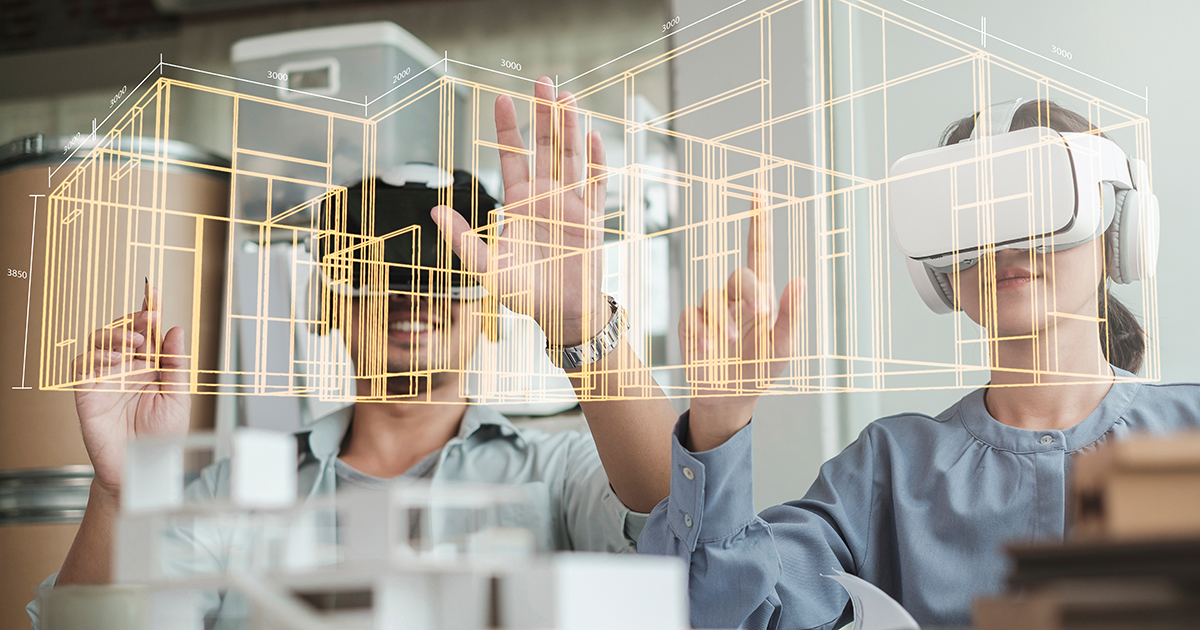Examining Technology's Impact on the A/E/C Industry
MPM deputy director Ahmad Hadavi reflects on his talk at the BuiltWorlds 2022 Construction Tech Conference and how the metaverse might influence the built industry.

BuiltWorlds hosted its The 2022 Construction Tech Conference looked holistically at how technology is influencing the built industry – from pre-construction through construction functions, and from the office as well as the field.
The conference was hosted by BuiltWorlds, a community and network of infrastructure and building professionals that was founded by Matt Gray (MPM '94).
Ahmad Hadavi, deputy director of Northwestern Engineering's Master of Science in Project Management (MPM) program, was one of the featured speakers at the event. Hadavi spoke on the future of mixed reality in construction and how the construction industry might be able to leverage augmented, virtual, and mixed realities.
"It was a fulfilling experience that I was able to share my ideas at the conference," Hadavi said. "Some people were doubtful that some of this technology will be as big as others expect."
Hadavi was asked to participate at the conference in response to his thoughts on the metaverse and how it could impact the A/E/C industry. Hadavi believes the metaverse could be a game-changing technology for the A/E/C industry — an industry he said is often behind most fields when it comes to technological innovation.
In his eyes, the metaverse can help project managers work with team members from around the world to resolve conflicts without needing to travel and gather in one place. Instead of being forced to look at two-dimensional screens, virtual and augmented reality can make it possible to digitally enter a project and solve problems as they arise.
Hadavi is not alone in his optimism about the metaverse. Citi Global Perspectives and Solutions estimated that by 2030, the metaverse economy could be worth up to $13 trillion.
At the Construction Tech Conference, Hadavi heard about companies exploring use cases for virtual and augmented realities. One example was a company that created virtual reality safety training simulations that immerse employees in a realistic environment for them to experience potential hazards in a safe place. Through this experience, they could be better prepared when they encounter problems on the job site.
Hadavi applauded the use of technology. He also acknowledged that leveraging advanced technologies like virtual and augmented realities is a luxury available to large companies that may not be possible for smaller businesses.
"It's something that's risky and potentially costly for small companies," Hadavi said. "And if you fail, it may impact the life and health of the company."
Hadavi was excited to bring some of the lessons he learned at the conference back to the classroom, where he shared new insights and perspectives with students. That's one of the perks of participating in industry events such as the Construction Tech Conference, he said. Another benefit was it offered him the opportunity to educate industry leaders about MPM and Northwestern Engineering's Master of Science in Executive Management for Design and Construction (EMDC) program.
"Conferences like this are an outlet for me to talk about our programs," Hadavi said. "I can tell people that MPM might be a good program for their employees, or maybe they themselves may be a candidate for EMDC. Ultimately, it's a venue for us to promote our programs and share what we offer at Northwestern."

